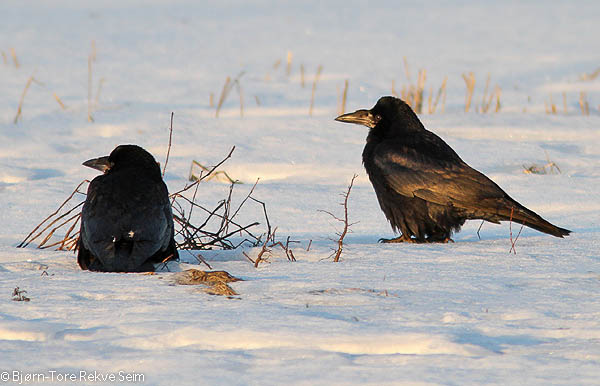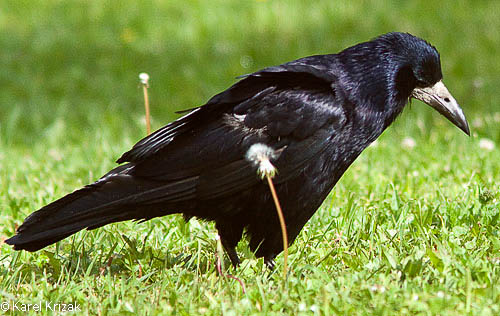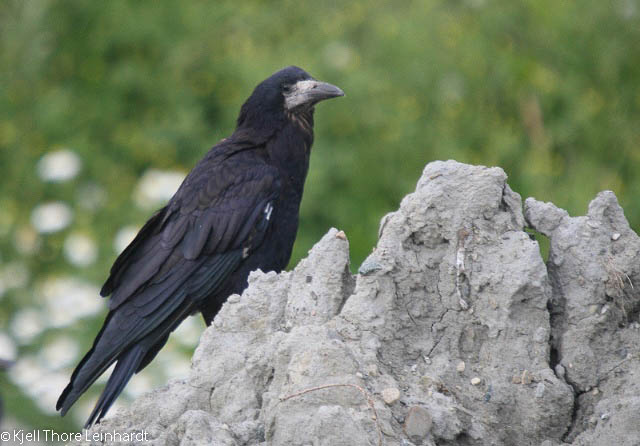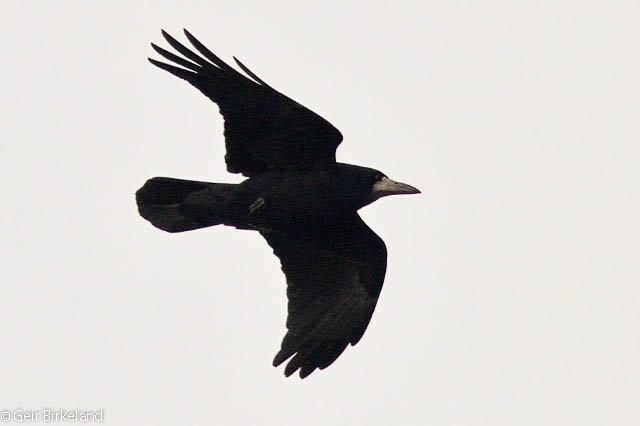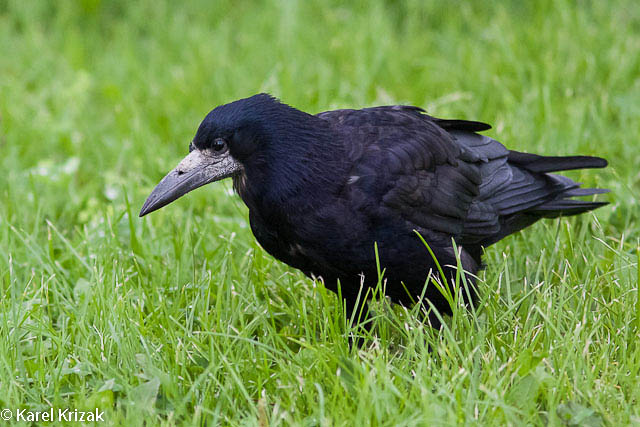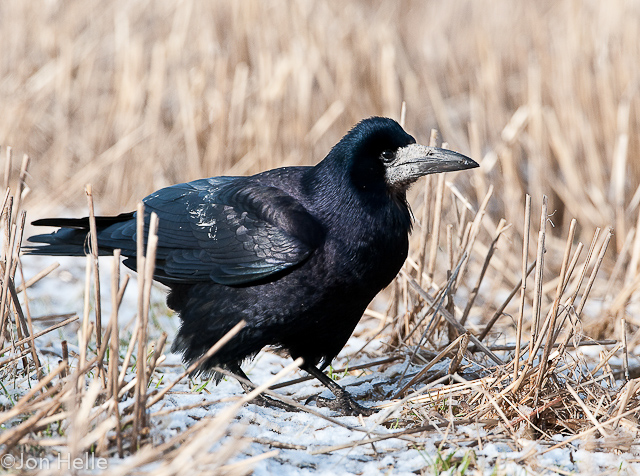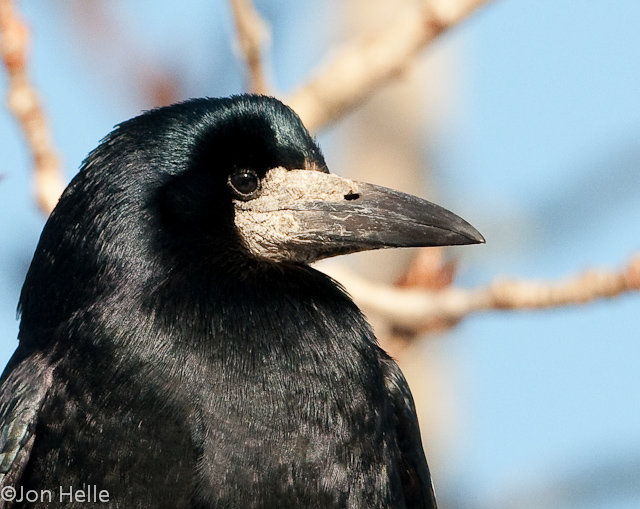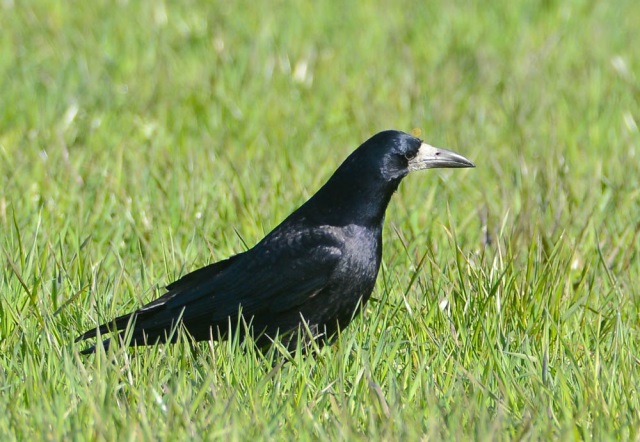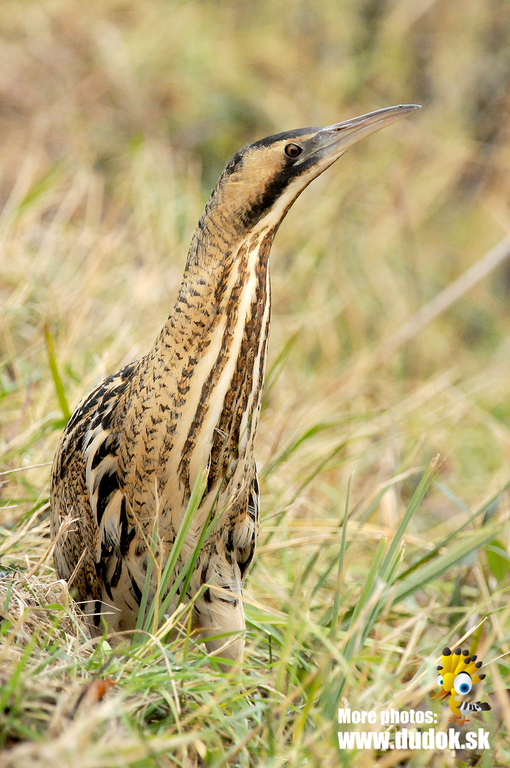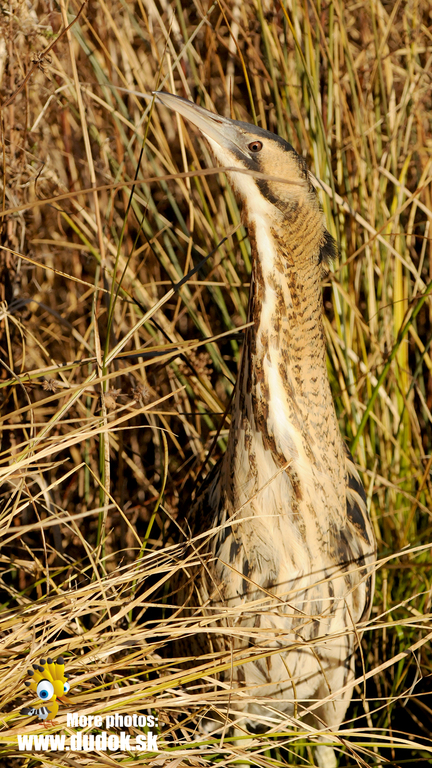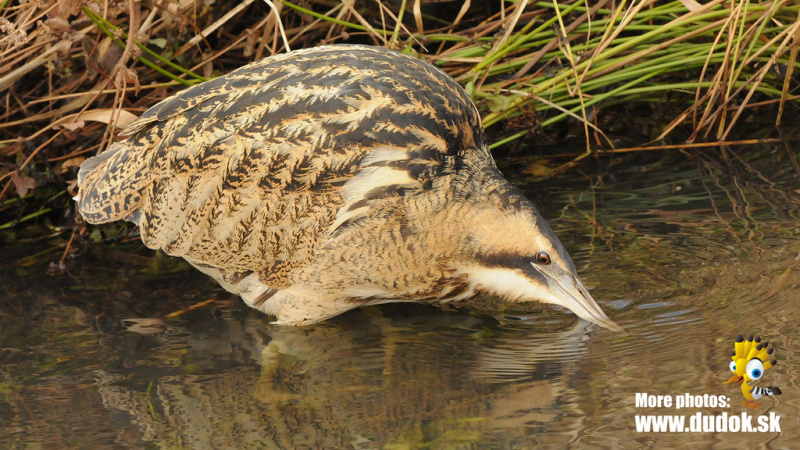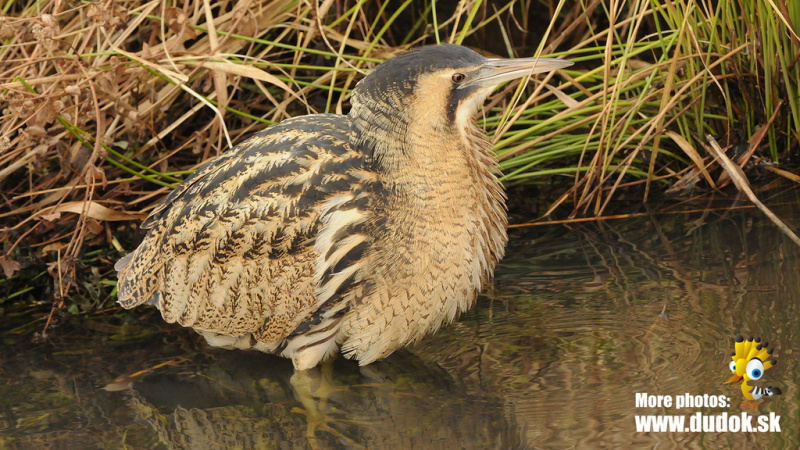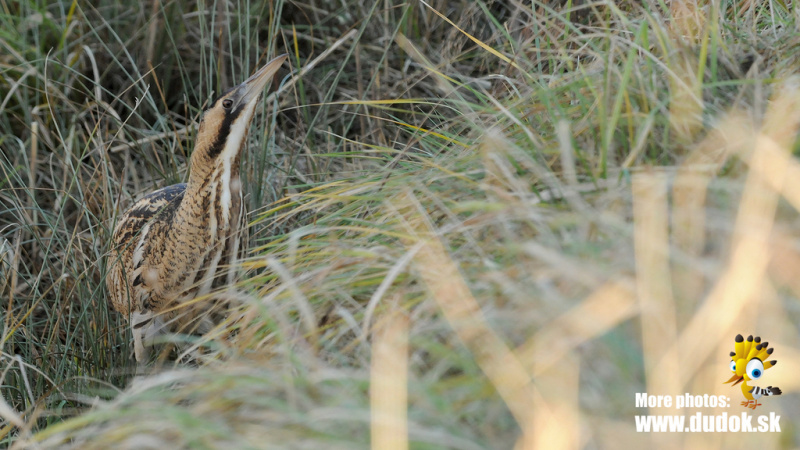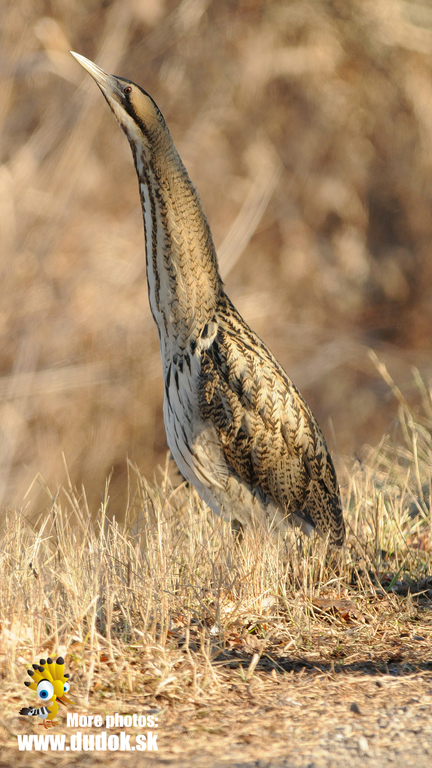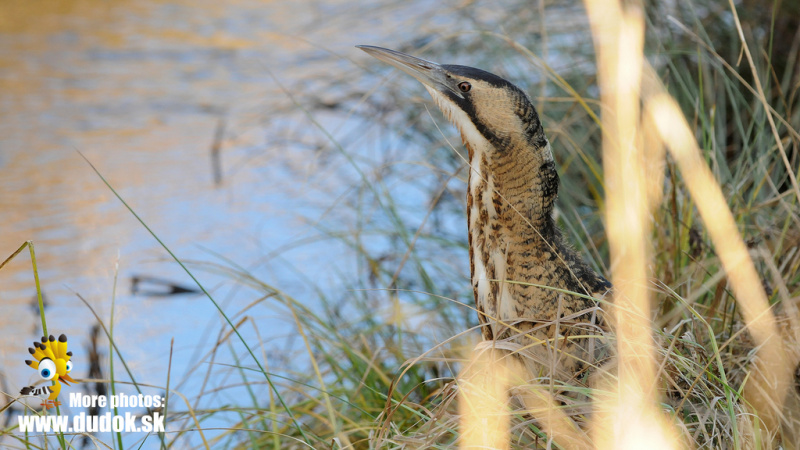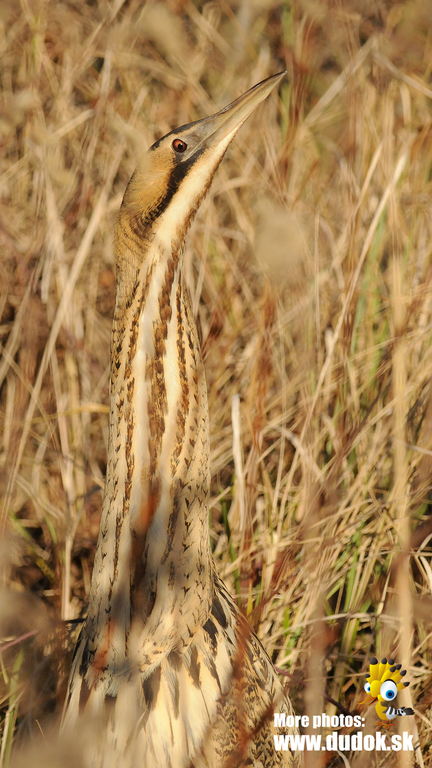Rook (Corvus frugilegus)
Bittern (Botaurus stellaris)
An all shiny black crow with diagnostic bare, pale grey base of bill, and "baggy trousers". Juveniles lacks bare bill base and are difficult to separate from Carrion Crow. Young Rooks however, has a steeper forehead and more conical bill with less curved culmen. Tail is more rounded and base of wings more narrow. Flight action includes less gliding than Carrion Crow, and individuals are more spread when a flock flies.
Sound:Makes similar caws as Carrion Crow, but is harsher, softer, flatter with less rolling r's. Also gives a varied song of soft gurgling and rattling sounds, interwoven with calls at breeding ground.
Contact call:
Distribution:
Wikipedia: map (se also Xeno-canto below)
Ecology:Birdlife ecology
Links:
Observation.org Latest observations
Image search Flickr NB! May give other species
CCBulky, golden-brown heron with thick neck and short legs. Largely unmistakable but skulky behaviour makes it difficult to observe, as it generally forages hidden in reed-beds. Plumage mottled above, with coarse stripes below. Primaries and most secondaries with dark barring, in contrast to paler coverts. May recall Eagle Owl in flight with broad, rounded wings and retracted neck, but wings are bowed and legs trail behind tail. Crown and moustache stripe black in adult and brown in immature birds. Betrays its presence by it's far reaching song.
Sound:Flight call a deep croaking "graat". Song unmistakable and far reaching (up to 5 km). Pitch very deep, with timbre similar to blowing on a big empty bottle. At close range an "inbreath" is also audible (1-3 dampened, higher pitched introductory notes).
Song (note; recording not audible on small mobile devices):
Distribution:
Wikipedia: map (se also Xeno-canto below)
Ecology:Birdlife ecology
Links:
Observation.org Latest observations
Image search Flickr NB! May give other species
CC
 English
English Albanian
Albanian
 Armenian
Armenian
 Bulgarian
Bulgarian
 Catalan
Catalan
 Croatian
Croatian
 Czech
Czech
 Danish
Danish
 Dutch
Dutch
 Finnish
Finnish
 French
French
 Georgian
Georgian
 German
German
 Greek
Greek
 Hungarian
Hungarian
 Italian
Italian
 Latvian
Latvian
 Lithuanian
Lithuanian
 Macedonian
Macedonian
 Norwegian
Norwegian
 Polish
Polish
 Portuguese
Portuguese
 Romanian
Romanian
 Russian
Russian
 Sami : Lule sami
Sami : Lule sami
 Sami : North sami
Sami : North sami
 Sami : South sami
Sami : South sami
 Scientific names
Scientific names
 Serbian
Serbian
 Spanish
Spanish
 Swedish
Swedish
 Ukrainian
Ukrainian


